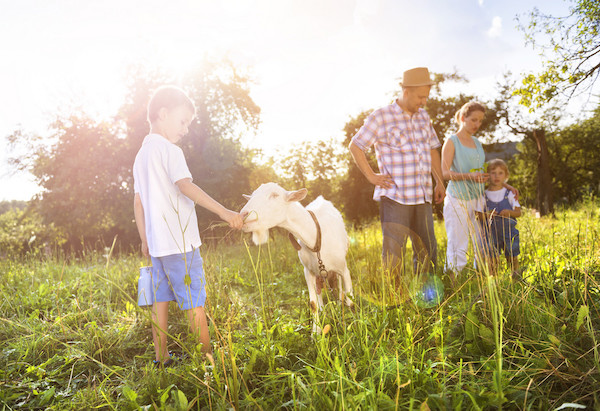
Sustainable living has increasingly become more and more important in today's world. People of all ages are taking strides to make their homes and lifestyles more eco-friendly. How can you teach your kids about sustainable living? Take these hands-on ideas into consideration.
Read Kid-Friendly Books About Sustainable Living and Agriculture
Reading kid-friendly fiction and nonfiction about sustainable living and agriculture as a family is a great way to educate young children. What topics can your kids learn about through books?
- The study of ecology
- How humans contribute to the quality of the earth, air, and pollution
- Climate change
- Gardening
- Farming. Food crops must compete with 30,000 species of weeds, 3,000 species of nematodes, and 10,000 species of plant-eating insects.
- Healthy eating and habits to pick up
- Garbage and recycling
Choose reads that'll work best for particular age levels. For young kids, learning about how plants grow would be sufficient, while older kids can handle learning about climate change and human effects on the planet. Be ready to answer their questions and have open and honest discussions about these subjects.
Start a Garden In Your Backyard
Sustainable living can start in your very own backyard. Plant a garden with a variety of vegetables with the help of your children. Gardening is a hands-on opportunity to teach your children about the process of planting seeds, caring for growing plants and veggies, and picking weeds. You can also educate your kids on basic environmental awareness and how planting your own garden promotes sustainable agriculture.
Growing a family garden will also introduce your children to the importance of eating healthy foods and basic nutrition. It's a great form of low-impact exercise that'll boost everyone's moods, increase levels of vitamin D, and teach problem-solving skills.
Shop Small
Another environmental concern comes from the fashion industry. Textiles and other fast fashion products are thrown out when they're not sold, contributing to a concerning amount of garbage being produced. According to Sustainyourstyle.com, "the fashion industry is the second-largest polluter in the world." Water pollution, soil degradation, rainforest destruction, chemical exposure, and an increase in greenhouse gas emissions are a few issues that the fashion industry contributes to.
How can you educate your children about these issues? Simply talk to them about how fast fashion negatively affects our planet and environment. For older kids who are picking out their own clothes at stores, this is especially an important discussion to have. More importantly, talk about what you can do as a family to prevent it. With 30.7 million small businesses in the United States to choose from, take your family to locally owned stores and boutiques as well as thrift stores to pick out clothing, jewelry, shoes, and other items. Buying less but higher quality clothing, fixing the clothes you have, and choosing sustainable brands and materials are great approaches to take as well.
Prioritize Recycling
Sustainable living includes recycling, so teach your children about the importance of this practice. Show your kids how to rinse and clean out empty plastic and glass bottles and containers. Set up labeled bins in your home so everyone in your family knows where to put recyclable items. Take your children with you when you return cans and bottles at the grocery store. This way, they'll see how the system works and why it's important to take part in it.
Engage With Repair Professionals
Eco-friendly practices in your home start with insulation and energy efficiency. Since your roof should be inspected once or twice a year anyway, hire professionals to inspect your roof and home this spring. Have them look for ways the structure of your home can be improved for maximum energy efficiency. Give your kids the opportunity to engage with the repair professionals and ask questions. This way, they can learn directly from the individuals who know plenty of information about the subject.
These hands-on learning opportunities will give your kids the chance to learn more about sustainable living. Teach them about how their choices and actions directly affect the environment. This way, they'll start and continue to make educated choices.


























